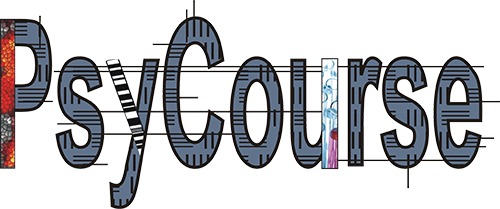2025-10-28
100_ The influence of protective and risk factors on psychotic-like experiences in healthy individuals and psychotic symptoms in patients with schizophrenia (Amendment to 081)
Research Question and Aims
State of the art:
The assumption of a temporal and phenomenological continuum of psychosis has led to the investigation of "psychotic-like experiences" (PLEs) in the general population in recent years (1). With a prevalence of 7.2% in the general population, PLEs represent a significant phenomenon (2) and increase the risk of developing psychosis, other mental and physical illnesses, suicidality and lead to a reduced subjective quality of life (3, 4, 5, 6). At the end of the psychosis continuum is schizophrenia, which is less common, with a prevalence of about 1.4%, but is associated with substantial impact on life (7, 8). Various factors have been identified as influencing both PLEs and schizophrenia. There is evidence that certain personality traits may both influence the occurrence of PLEs and psychotic symptoms. In particular, higher levels of neuroticism appear to be directly related to the occurrence of psychotic symptoms, as do higher levels of openness and lower levels of extraversion (9). In addition, cannabis and tobacco use have been reported in the literature as independent predictors of PLEs (10, 11, 12). There is also an interaction between the Polygenic Risk Score for Schizophrenia (PRS-Sz) and PLEs in healthy individuals (13). Childhood trauma and a family history of psychiatric illness play a role in the development of psychosis (7, 14, 15). The 2021 discovered "polygenic resilience score" may also be of interest in this context and will be investigated in the analysis of factors influencing both PLEs and schizophrenia (16). There is currently no analysis comparing these factors for both PLEs in healthy controls and psychotic symptoms schizophrenia in a statistical model.
Objective:
We aim to investigate whether and to what extent potential influencing factors such as personality traits, cannabis and tobacco consumption, as well as PRS-Sz, PRS Resilience, noticeable family history, and childhood trauma influence PLEs (measured by the Comprehensive Assessment of Psychotic Experiences (CAPE-42)) in healthy individuals and psychotic symptoms in patients with schizophrenia (measured by the Positive and Negative Syndrome Scale (PANSS)). The PsyCourse dataset provides a unique opportunity to analyze and compare the effects of all these factors together in one single model. A better understanding of the factors that influence psychotic symptoms at the beginning and end of the psychosis continuum could improve both prevention and early recognition of psychosis.
Analytic Plan
Hypothesis 1:
We hypothesize that in a group of healthy controls, the extent of the influence of protective factors (PRS Resilience, inconspicuous family history) and risk factors (tobacco use, cannabis use, childhood trauma (cut-off total), Big Five openness and neuroticism, PRS Schizophrenia) on PLEs differs (CAPE-42).
Hypothesis 2:
We hypothesize that in a group of patients with schizophrenia, the extent of the influence of protective factors (PRS Resilience, inconspicuous family history) and risk factors (tobacco use, cannabis use, trauma (cut-off total), Big Five Openness and Neuroticism, PRS Schizophrenia) on psychotic symptoms differs (PANSS).
Hypothesis 3:
We hypothesize that the extent of the influence of protective factors (PRS Resilience, inconspicuous family history) and risk factors (tobacco use, cannabis use, trauma (cut-off total), Big Five Openness and Neuroticism, PRS Schizophrenia) on PLEs in healthy individuals or respectively psychotic symptoms in patients with schizophrenia differs.
Participants
Data from healthy individuals (Control Group) and patients with Schizophrenia from the PsyCourse who have completed the CAPE-42 or the PANSS will be included in this study.
Analytic methods for H1:
Method: multiple linear regression with standardized variables, comparison of effect sizes
Dependent variables: psychotic experiences measured with CAPE-42 (positive, negative and affective subscale)
Independent Variable: personality traits, cannabis use, tobacco use, Childhood Trauma (CTS) and PRS for schizophrenia, PRS for resilience, family history
Covariate: age, sex, ancestry principal components
Resources needed
v1_panss_p1
v1_panss_p2
v1_panss_p3
v1_panss_p4
v1_panss_p5
v1_panss_p6
v1_panss_p7
v1_panss_n1
v1_panss_n2
v1_panss_n3
v1_panss_n4
v1_panss_n5
v1_panss_n6
v1_panss_n7
v1_panss_g1
v1_panss_g2
v1_panss_g3
v1_panss_g4
v1_panss_g5
v1_panss_g6
v1_panss_g7
v1_panss_g8
v1_panss_g9
v1_panss_g10
v1_panss_g11
v1_panss_g12
v1_panss_g13
v1_panss_g14
v1_panss_g15
v1_panss_g16
v1_panss_sum_pos
v1_panss_sum_neg
v1_panss_sum_gen
v1_panss_sum_tot
v1_cape_itm1A
v1_cape_itm1B
v1_cape_itm2A
v1_cape_itm2B
v1_cape_itm3A
v1_cape_itm3B
v1_cape_itm4A
v1_cape_itm4B
v1_cape_itm5A
v1_cape_itm5B
v1_cape_itm6A
v1_cape_itm6B
v1_cape_itm7A
v1_cape_itm7B
v1_cape_itm8A
v1_cape_itm8B
v1_cape_itm9A
v1_cape_itm9B
v1_cape_itm10A
v1_cape_itm10B
v1_cape_itm11A
v1_cape_itm11B
v1_cape_itm12A
v1_cape_itm12B
v1_cape_itm13A
v1_cape_itm13B
v1_cape_itm14A
v1_cape_itm14B
v1_cape_itm15A
v1_cape_itm15B
v1_cape_itm16A
v1_cape_itm16B
v1_cape_itm17A
v1_cape_itm17B
v1_cape_itm18A
v1_cape_itm18B
v1_cape_itm19A
v1_cape_itm19B
v1_cape_itm20A
v1_cape_itm20B
v1_cape_itm21A
v1_cape_itm21B
v1_cape_itm22A
v1_cape_itm22B
v1_cape_itm23A
v1_cape_itm23B
v1_cape_itm24A
v1_cape_itm24B
v1_cape_itm25A
v1_cape_itm25B
v1_cape_itm26A
v1_cape_itm26B
v1_cape_itm27A
v1_cape_itm27B
v1_cape_itm28A
v1_cape_itm28B
v1_cape_itm29A
v1_cape_itm29B
v1_cape_itm30A
v1_cape_itm30B
v1_cape_itm31A
v1_cape_itm31B
v1_cape_itm32A
v1_cape_itm32B
v1_cape_itm33A
v1_cape_itm33B
v1_cape_itm34A
v1_cape_itm34B
v1_cape_itm35A
v1_cape_itm35B
v1_cape_itm36A
v1_cape_itm36B
v1_cape_itm37A
v1_cape_itm37B
v1_cape_itm38A
v1_cape_itm38B
v1_cape_itm39A
v1_cape_itm39B
v1_cape_itm40A
v1_cape_itm40B
v1_cape_itm41A
v1_cape_itm41B
v1_cape_itm42A
v1_cape_itm42B
v1_big_five_neuro
v1_big_five_openn
v3_cts_1
v3_cts_2
v3_cts_3
v3_cts_4
v3_cts_5
v3_cts_els_dic
v3_cts_1_dic
v3_cts_2_dic
v3_cts_3_dic
v3_cts_4_dic
v3_cts_5_dic
gsa_id
